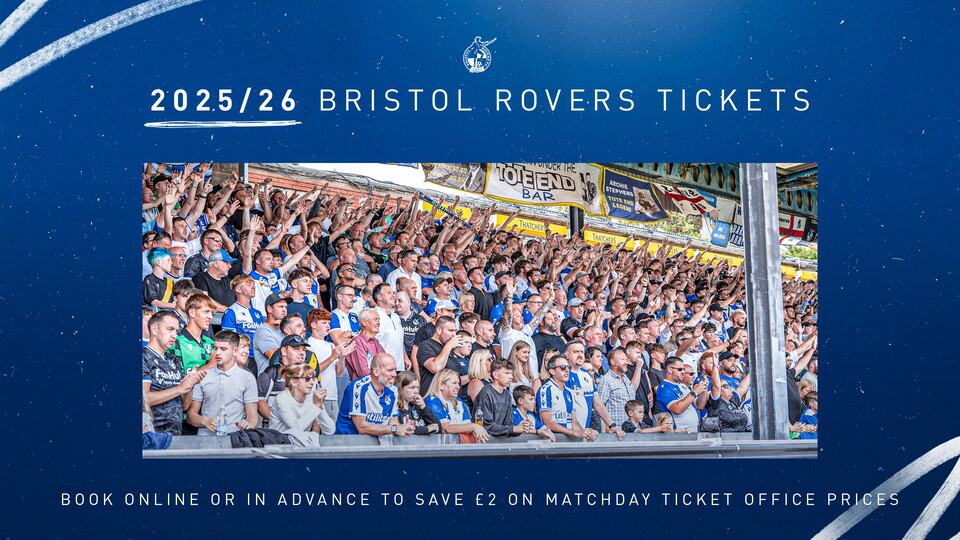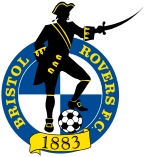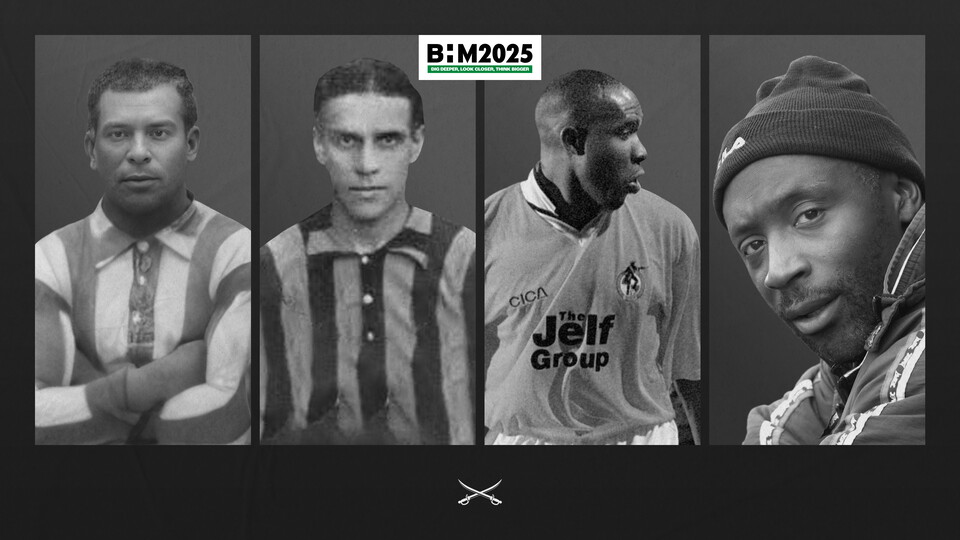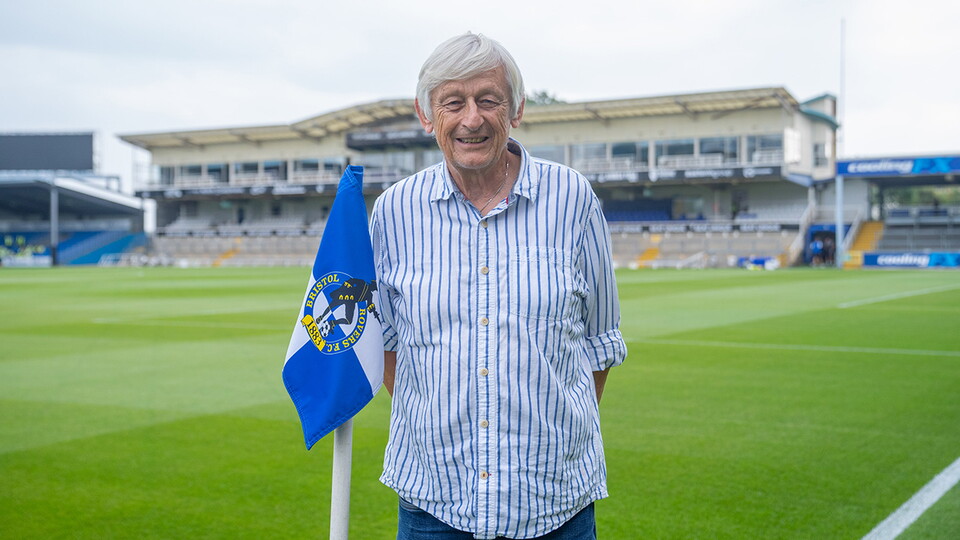In recognition of Black History Month, Club Historian Keith Brookman looks back at the first black players to pull on the blue-and-white quarters...
October is the designated Black History Month in the United Kingdom, a celebration that began in this country in 1987 which was the 150th anniversary of the abolition of slavery in the Caribbean.
In terms of football, though, it’s a celebration of black players in our game and remembering those who came before and paved the way for black footballers to play, as equals. It also serves as a reminder of the abuse that many have had to face and which is still prevalent in some pockets of our game.
For this article, though I will focus on some of the black players who have turned out for Bristol Rovers down the years, some successful, others not so, and those who have provided us supporters with some magical moments in our long history.
To be honest, I wasn’t absolutely certain who was deemed to be the first black player to turn out for Bristol Rovers, though oddly enough I did know about Northampton Town’s first black footballer, Walter Tull. There used to be a pub (now closed, I believe) located high above Northampton Town’s Sixfields Stadium which commemorated Tull.
Tull played for Northampton from 1911 until the outbreak of the First World War during which he became the first black officer in the British Army to lead white soldiers into battle, and a symbol of equality and inclusion in sport and society.
I only know that for the simple reason I’ve parked near the pub on several occasions during many visits to watch Rovers play at Sixfields.
But what about Rovers’ first black player? For this information I enlisted the help of Football Historian Stephen Byrne, a gifted writer and also a Rovers supporter and he tells me that William Clarke is regarded as the first black player to appear in a Rovers shirt.
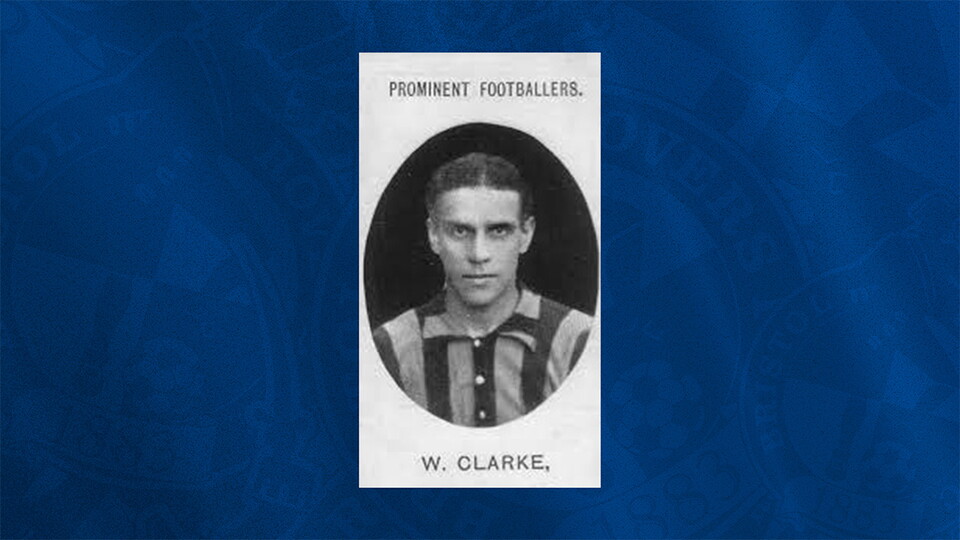
Clarke was born on 3rd March 1878 in Mauchline, Ayrshire and played for Kelburn, Crown Athletic, Third Lanark, Arthurlie and East Stirlingshire before joining Rovers in August 1900. Later in his career he turned out for Aston Villa, Bradford City, Lincoln City and Croydon Common, retiring in May 1912.
He was the first black professional in Scotland, one of the first players with black heritage to appear in the Football League and certainly the first with Rovers, through his Guyanese paternal grandmother, Cecilia. He was the eighth of twelve children, and the youngest of four boys, to Alexander Clarke (1842-96), a railway engineer born in Georgetown, British Guyana, who had come to Scotland as a teenager.
Willie was sometimes known by the name of William Gibb Clarke, although this name does not appear on birth or death records and may have been used to distinguish himself from others of similar names. ‘A very promising player, …… he shoots on the run with great force’, reported ‘The Scottish Referee’ on the Crown Athletic player called up for the March 1897 Scotland v Ireland junior international.
On joining Rovers he settled in Freemantle Street, Eastville. After three goals in 20 Southern League ties, as well as a second half hat trick as non-league Weymouth were trounced 15-1 in the FA Cup in November 1900, his second being a spectacular long range strike, outside right Clarke played First Division football for Aston Villa. He won a Second Division championship medal with Bradford City in 1907/08 and registered Bradford City’s first ever top flight goal, against Bury, in September 1908.
Willie Clarke died aged seventy at the Kent and Sussex Hospital in Tunbridge Wells after a long illness and is buried in Tunbridge Wells Cemetery.
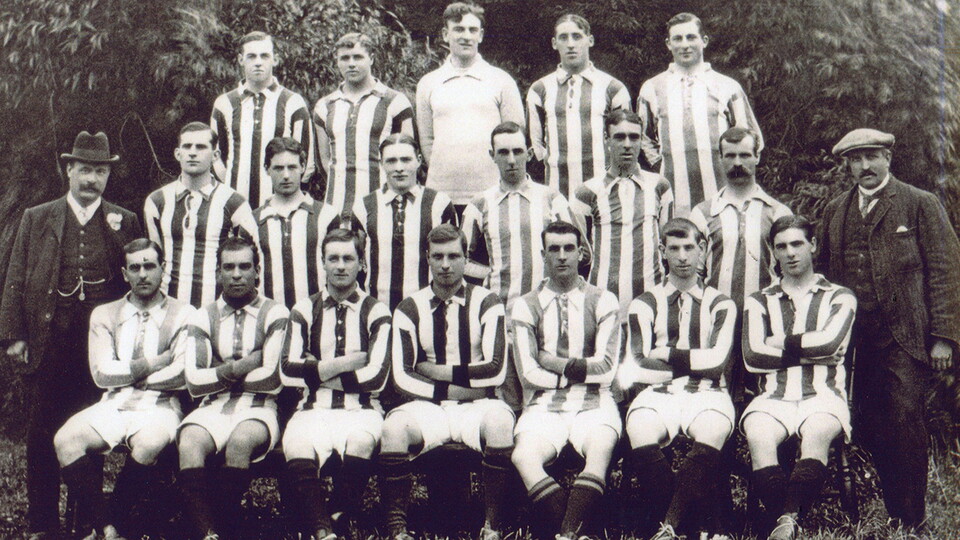
Another black player to turn out for Rovers in their Southern League years was inside right Bill Haggard, who made his Rovers début on Good Friday 1912 and scored in the 3-0 victory over Swindon Town 24 hours later.
Sporadic games the following campaign brought autumn goals against Northampton Town and QPR, to accumulate a total of three goals in 13 Southern League fixtures.
After Willie Clarke, Haggard was the second black footballer to appear in Rovers’ first team. His father, Joseph Haggard (1847-1906) was an illiterate man born in Demerara, British Guyana, the son of a cooper, Joseph Haggard senior, and he served on RMS Corby.
It appears that Bill Haggard, who died in Barry, Glamorgan, in 1960, was in the Royal Artillery in 1920 and serving in the Merchant Navy the following year.
So, were those two players pioneers for future black players to turn out for Bristol Rovers? They were certainly the first two that we know of, but it was to be many years until they were joined in the Rovers history books by black players to have not only enjoyed their football with the club, but who were embraced by supporters.
I have a large collection of Rovers team photos taken down the years and it’s remarkable that there are very few black footballers in any of them from the 1920’s through to the 1970’s. I’m not sure if that was the case at other clubs during those years. Given that it wasn’t until 1978 that Viv Anderson became the first black player to represent England in a full international, that may well have been the case.
Keith Brown, a product of the Rovers youth set up, appeared in seven league games for Rovers, making his debut in April 1979, more than 60 years after Haggard’s final Rovers appearance. Then there was Errington Kelly who played league football for both Bristol clubs before embarking on a successful teaching career.
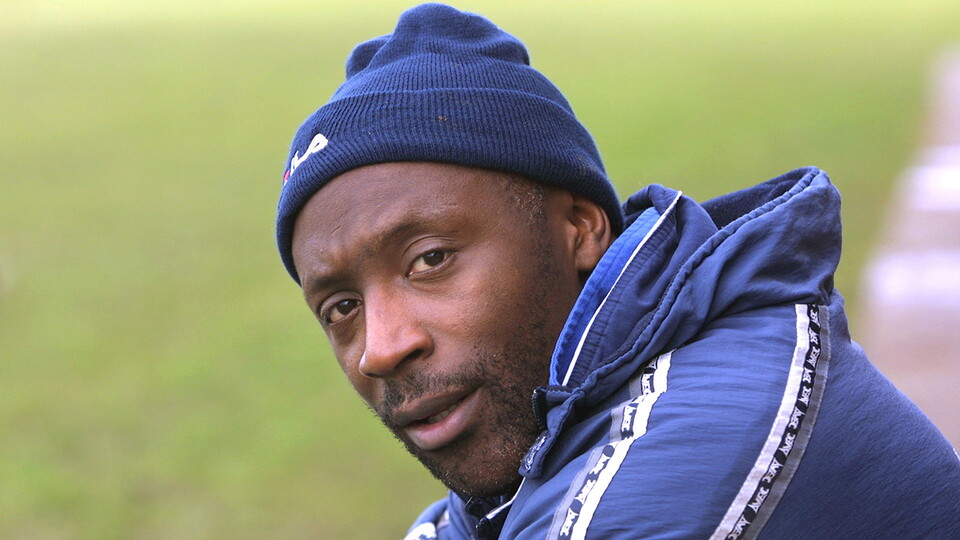
I’m sticking my neck out here and saying that it wasn’t until Gerry Francis became manager first time around that there were black players with the club who made a truly significant contribution on the pitch. For instance, there was the goalscoring exploits of Carl Saunders and Devon White, the popular Christian McClean, who still attends Rovers game whenever he can and remains an enthusiastic supporter of the club and the ever reliable Tony Sealy who, in the space of ten years, won championship medals for four clubs, one of them being Rovers.
Moving on into the 1990s, the quiet and reserved Worrell Sterling played over 100 league games for Rovers, while the bubbly Terry Connor was a coach under John Ward and, later during that decade we saw Frankie Bennett in Rovers’ colours. Always popular with supporters, he was our guest just a few weeks ago and received his legacy cap.
Ian Holloway’s time as manager saw Rovers sign some exciting players; think Jason Roberts, Barry Hayles and Nathan Ellington. Think also Bobby Zamora, who spent two years with us as a scholar, but was then sold to Brighton. He later played for Spurs, West Ham, Fulham and QPR of course, and won a couple of England caps in a career that was nurtured at Rovers. What a strikeforce we had back then and how exciting those players were. With Jamie Cureton and Peter Beadle at the club during those early years back at The Mem, we were fortunate to see an entertaining side so full of goals.
We can’t forget the club’s first black manager, either; step forward Garry Thompson, a great character who hated the fact that he was in charge when we were relegated back in 2001. Mark Walters was also with us at that time, and although in the twilight of what had been a marvellous career, was such an exciting player to watch with his trademark stepovers and deadly free kicks.
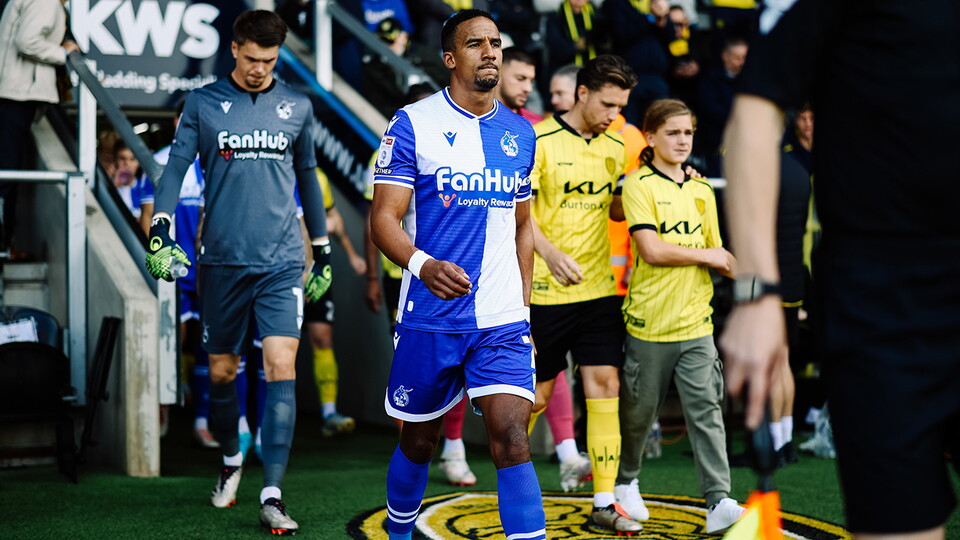
Junior Agogo, another striker to entertain, came along later, as did Aaron Lescott, Anwar Uddin, Daniel Leadbitter, Christian Montano, Byron Moore, Kaid Mohammed. There’s also been Leon Clarke, Luca Hoole, Mark Little and Stefan Payne, though he wasn’t the most popular player to pull on a Rovers shirt, and we can’t forget Scott Sinclair, another Academy product who found fame and fortune away from Rovers following a couple of early cameo appearances before returning to the club for the final two years of his career.
How, you might ask, have I forgotten Jonson Clarke-Harris and Jake Clarke-Salter. The answer is I haven’t. Clarke-Harris was rumoured to be returning to The Mem for a second spell on more than one occasion, while Chelsea loanee Clarke-Salter is an England U-20 World Cup Winner. Speaking of England, how about Jarrell Quansah who is actually eligible to play for England, Scotland, Ghana and Barbados but has chosen England and is a Euro winner at U-21 level. On loan from Liverpool during his time with us, Quansah's career has taken him to the German top tier with Bayer Leverkusen.
Take a look at the squad we have today; Promise Omochere, Shaq Forde, Kamil Conteh, Micah Anthony, Bryant Bilongo, Freddie Issaka, Clinton Mola and the character that is Ellis Harrison, one of the nicest blokes you could meet in football.
Apologies if I’ve missed anyone out, it’s not deliberate, honestly. All of the above mentioned players, as well as those I haven’t included, have played their part, no matter how big or how small, in the Bristol Rovers story and should be celebrated for their time with us. And that, surely, is exactly what Black History month should be – a celebration of the black players who have played football, not only for Bristol Rovers but for all clubs. Their involvement has truly enriched our national game.
